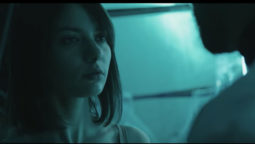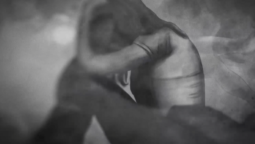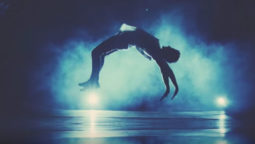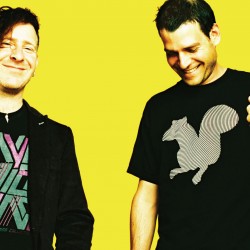Emotional Dance Music. Likely not the description you’re used to when you think of “EDM,” but there’s more to electronic than just what’s on MTV, festival main stages, and the airwaves. If you aren’t already familiar with the duo of Gabriel & Dresden (shame on you!), they’ve been creating songs that make you feel good—or ones that make feel good about feeling bad—for over a decade. The point is, in a world where soulless wonky and glitchy sounds have taken over, their music makes you feel something (besides angry). Their tracks, such as the modern classics “As the Rush Comes” as Motorcycle with singer Jes, or “Tracking Treasure Down,” you’ve no doubt heard their music in someone’s set at some point and they’re continuing to innovate with their latest track, “Rise Up.” Out March 31 on Beatport and April 14 on iTunes, we got an exclusive interview with Dave Dresden about the new track, how to dig for new tunes in a sea of copycat producers and the state of “EDM.”
You’re at your home in San Francisco at the moment (Josh Gabriel lives in Amsterdam). Were you working on anything in particular?
Before you Skyped me, I was in the process of making a bootleg. The song called “Pompeii” by Bastille? Well, I found the a capella online. Anyway, so I’m playing with it and I’m like, “This isn’t quite right.” So I went to YouTube and listened to the original song; this is a fucking cover! Somebody did a very damn good cover and just put the a capella online. I guess they’re thinking maybe if people do bootlegs of this song they’re gonna use his voice. But I’m pissed off. I really was like, “Damn! I got the Bastille a capella! Cool! I’m gonna make a bootleg!” So I have producer blue balls right now. “Producer blue balls”: When you find a bullshit a capella online. My fake alarm kept going off.
Let’s talk about “Rise Up.” What’s the story behind the track?
“Rise Up” is a song that was started about two years ago. We played at Avalon in L.A., then we had a couple days off in L.A. before our gig in Vegas. So we went to our friend’s house who has a Moog modular synthesizer, which is one of these crazy synthesizers that doesn’t have a keyboard, but you plug wires into it. Where you plug the wire determines what the sound is. We just went crazy and recorded all these passes of the music in that song. The first time we ever played it was in Vegas. We literally took a bunch of the keyboard recordings and put a beat over it and played it. Already it rocked—even then. So we knew we had something but we weren’t quite sure.
We put it aside for a little while and we came back to it like six months later and we were just tweaking it for another six months here and there, we’d work on it for a few hours and finally we were like, “OK, it’s done.” That song pretty much took a year-and-a-half to make. But very on-and-off. It was one of the tracks we played in our sets that always worked. We never took stock in the fact that if something works, it’s probably good. We’re just such perfectionists when it comes to making music. Sometimes you just don’t know when it’s done.
Do you find that sometimes it’s hard to finish a project, i.e. you keep listening to it and adding or changing elements?
Honestly, after the second session of “Rise Up” we could have been done [laughs]. That’s the sad part is that yeah, sometimes you just don’t know. We used to have deadlines when we were running our own label and had a manager that was on us to finish stuff. But it’s been very open-ended now that we have our label through Armada. They’re like, “When you give us stuff, we’ll release it” [laughs]. So that makes us spend a lot of time. It’s a good lesson for us to know in the future that when it sounds good and it rocks a dancefloor, it’s done.
How do you think the track will be received by the old-school Gabriel & Dresden fans and what do you think about “Rise Up” will appeal to those not familiar with your music?
Honestly, I think the old-school G&D fans will love it because it’s made in the same spirit as our old music. Of course we never had a modular synthesizer so we were never able to make sounds like that before. The appeal of the song is the gnarly sound of the synths and I think that will appeal to a wide variety of people as it has DJs. We’re getting good reactions from trance guys, EDM, electro, house, big-room guys, progressive, techno—a lot of different DJs are feeling this because it’s a lot of different genres.
Eric Prydz is a fan of it, correct?
Yeah, Eric Prydz emailed us to tell us that he loved it. DJs don’t email unless they really like it.
Do you think you may work on another full-length artist album down the road?
It’s kind of tough for us to think about working on an album in earnest when it takes about a year to make an album. Then to release it and only like two songs are the ones that people buy? It just seems like a waste of time. But at the same time, it’s kind of how the industry still works. Avicii, his album has done so much for his music career, so it’s like, do we take a year off from really DJing and releasing singles to actually make an album? Or do we keep releasing singles when we make something that we like? Who knows what the right thing to do is—we don’t [laughs].
We loved making an album when we released one in 2006; it was a really awesome process. But that was when people were buying albums more. People are buying music less and less. It’s just about putting good content out there, really. You can make an album in two months if you fill it up with bullshit. To make a real good album it takes a year.
What else is going on with you guys?
We’re focusing on the band right now. But we just started a podcast and a radio show on Digitally Imported the first Monday of every month. We’ve really enjoyed getting back to producing radio shows and really going out and finding music. We’ve discovered a ton of great new artists we didn’t know about and really love their music and it’s inspiring us in really interesting ways. It’s like, we felt like there was nobody else out there making music that we—we got really disillusioned with the whole “EDM” thing. Everything kinda sound similar, similar structure, it’s got a big buildup and a big drop, big riff. It just got boring and we were really disillusioned with dance music. So doing this radio show and the podcast has really inspired us a lot and I think you’re going to feel it in the music that we’re making. It’s gonna feel a lot more honest.
You mention EDM and you’re the first if not only one to switch it up from “Electronic Dance Music” and call it “Emotional Dance Music.” How did that come about?
It was just a brain fart that I tweeted one day. It was like, “EDM: To us that means ‘emotional dance music.’” But it said a lot about the music that we play. We play music that makes you feel something. It is emotional. So it’s a nice little tag. People have gotten into it. We’re not going to trademark it or anything.
As a former electronic-music journalist, what are your thoughts on the current climate of the sound these days?
I feel like in the promotion of “Rise Up,” I’ve really found that there’s a lot of people out there looking for new music, new sounds. Some of the DJs that are liking “Rise Up” probably wouldn’t have liked it a year ago. I think that people are kind of tired of the sound that’s been prevalent in the last four or five years. They all have the dubstep bass in it somewhere and they all have the snare on the one and the payout that goes “Do-da-do-dadoo-doo-doo-do-do” and the big snare. It all sounds like Nazi music to me [laughs]! I’m telling you and [everyone] needs to go play that song “Tsunami” [by DVBBS & Borgeous] and go on YouTube and search for videos of Nazis marching and play them together. I’m telling you, it’s the best video; somebody can make a viral video out of it if they have the balls. … You should do that and say “Dave Dresden thought this was a good idea.” [Laughs] I’d be the first Jewish Nazi ever. Oy vey!
Where do you look to discover unknown artists?
What you do is you really just follow links and trails. Like on Beatport, for example. We started a whole new account that had no outside noise so we could get a dope My Beatport. So we started adding artists—there’s another Dutch guy called Applescal that we discovered and found a lot of artists from him. You start to see based on what listeners bought or recommended on Beatport when you look at a certain song … That’s become our system for finding music for the radio show really. There’s ways to do this on other mediums besides Beatport. You could go to 1001 Tracklists and then you have Sasha on a boat in Miami! That’s probably gonna be an awesome playlist. … So it’s really just starting with whatever you think is quality. It’s just amazing how much you will find just following those trails.
Who do you wish people would listen to, besides you guys of course?
We’re really liking this guy from France; his name is Eggo. If you go on YouTube and listen to his music, it’s just amazing. I was actually just having a conversation with this dude and he was like, “I have a day job” and I was like, “That is so sad that this guy who makes this amazing music has a day job!” He’s amazing.
There’s another guy who’s also from France and his name is Teho. … He’s amazing. Those are two that we can think of right off. We like Guy J, Jeremy Olander—he’s a guy that kind of crosses over into EDM, but he’s very classy. Eric Prydz, we love him. Deadmau5 can every now and again make a great track. We definitely are a member of his little online forum. It’s great because he gives the full tracks to all these thing he’s been making over the internet for years. We actually made a bootleg with a Lana del Rey vocal on it on one of our podcasts on one of these new Deadmau5 tracks. It’s so beautiful. There’s a lot of good music if you just scratch the surface.
Listen to the radio edit of “Rise Up” in the DJOYbeat podcast below!







Join the discussion
comments powered by Disqus